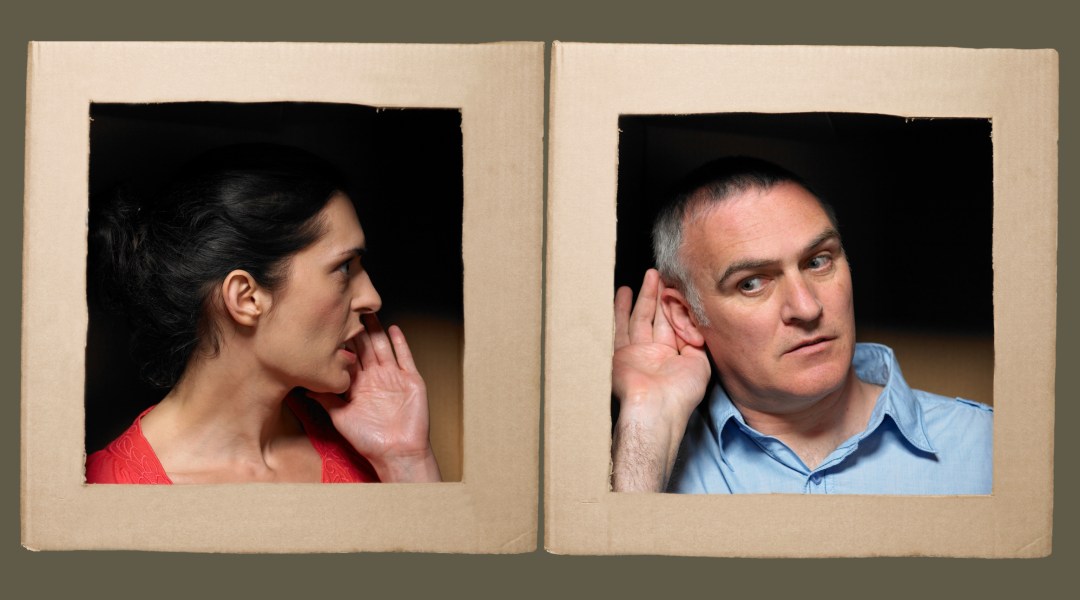What happens when what you said isn’t quite what your partner heard?
Sarah Abell has the lowdown in this month's Love Life Lab Experiment…

The project
Have you ever said something to your partner only to find they ‘heard’ something different? Such misunderstandings are common in relationships and often cause arguments. And according to the authors of Fighting For Your Marriage (Jossey Bass, £13.99), that’s because most of us communicate through filters.
The aim
Filters are the main miscommunication culprit in relationships. By understanding them, you can immediately improve how you relate.
The theory
We all have filters, which affect what we hear, say and how we interpret things. When what you say isn’t what your partner heard, then some of the following filters may be in play:
- Distractions. Whatever the distraction, it can stop us focusing properly. If you want to discuss an important issue, find a good time and place, then give each other your undivided attention.
- Emotions. If you’re angry, worried or sad, it can negatively affect how you interpret what your partner says. Recognising your mood can help you both realise what is going on.
- Beliefs and expectations. People tend to see what they expect to see in others or in situations. Don’t try to mind-read – check out any assumptions with your partner
- Differences in style. Being aware of these can help prevent misunderstandings.
- Self-protection. Fear of rejection can prevent us from saying what we really want or feel. Clearly expressing these feelings is likely to increase your potential for intimacy.
Try it out
- Don’t defend your memory. Some of the biggest arguments couples have are about what was actually said in the past. This month, try giving up ‘being right’ about the past – even if the past was only half an hour ago. Shift the topic to what you think and feel in the present instead: ‘I’m not sure what I said exactly, but what I meant to say was…’
- Announce your filters. Try spotting a filter in play in your daily conversations and tell your partner. For example, if you had a bad day at work you might say, ‘If I seem short, or distant, it isn’t you – it’s because I had a tricky chat with my boss and I’m preoccupied about it now.’
Sarah Abell is a relationships coach and the author of Inside Out – How To Build Authentic Relationships With Everyone In Your Life (Hodder, £8.99). Find out more at nakedhedgehogs.com. To buy her LifeLabs Practical Wisdom online course How to Save Your Relationship, please click here. You can try a free 3-day taster trial first too.








